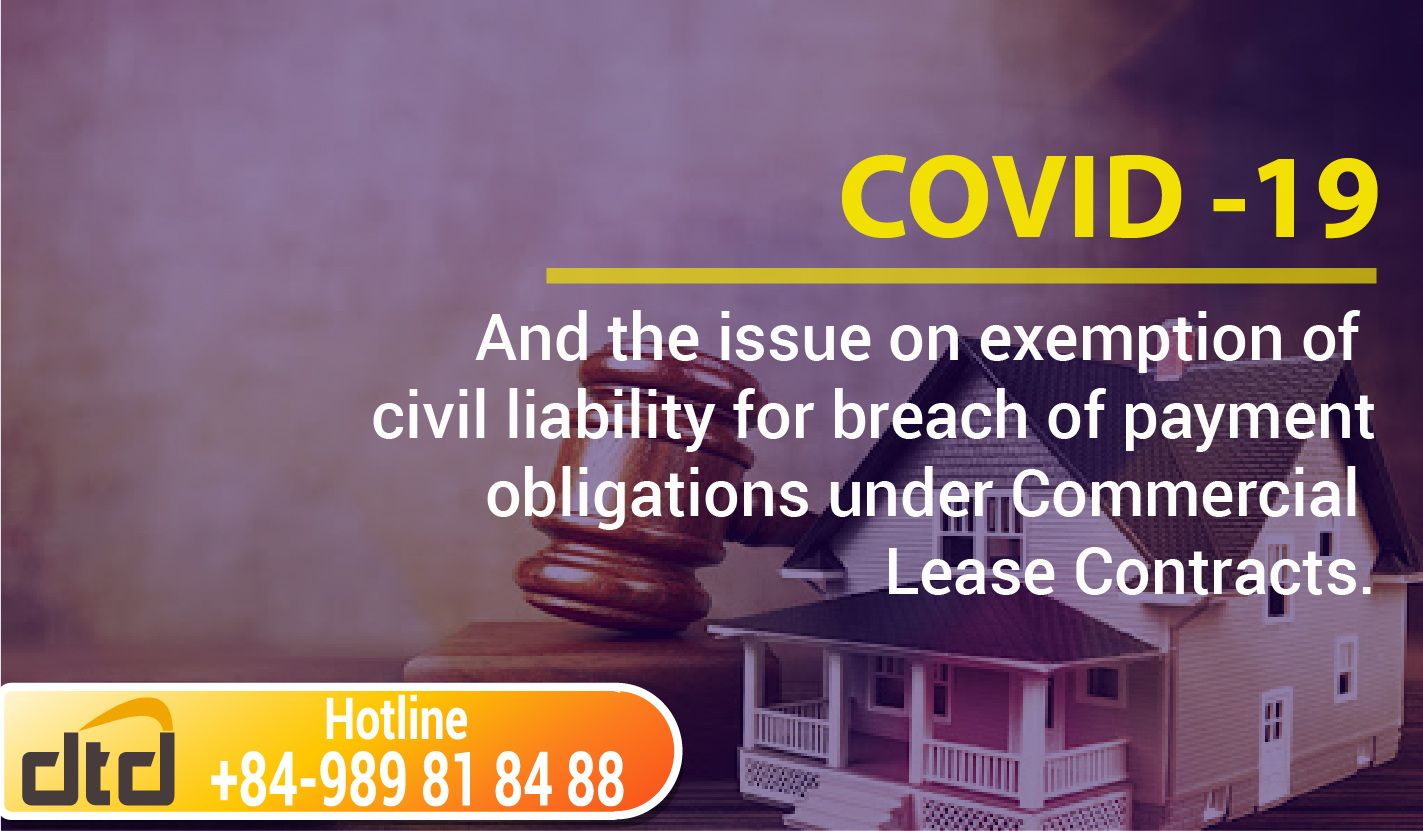
Covid-19 and the issue on exemption of civil liability for breach of payment obligations under Commercial Lease Contracts.
On March 11, The World Health Organization (WHO) announced the severe acute respiratory syndrome epidemic (Covid-19) caused by novel coronavirus (SARS-CoV-2) a global pandemic.Vietnam is also one of the countries that have been heavily affected by this serious disease. The outbreak of COVID-19, together with its corollary impacts to the economy caused many business premises to close temporarily under the Prime Minister's Directive No. 16 / CT-TTg. It has raised a question that whether the tenants under the commercial lease contracts can be exempted from civil liability for breach of contract, especially the breach of payment obligations, in an event of force majeure which specially relates to the outbreak of COVID-19. Under the scope of this article, DTD will provide readers with clear analysis and legal perspectives on this issue.
How Force majeure events are prescribed according to Vietnamese law?
According to Article 156 of the 2015 Civil Code, force majeure events are as follows:
“An event of force majeure is an event which occurs in an objective manner which is not able to be foreseen and which is not able to be remedied by all possible necessary and admissible measures being taken.
An objective hindrance is a hindrance which in an objective context results in a person with civil rights or obligations not knowing that his or her lawful rights and interests have been infringed or not being able to exercise his or her rights or fulfill his or her civil obligations;”
Legal consequences in case of the occurrence of an event of force majeure are stipulated in Article 351.2 of the Code, specifically:
“Where an obligor is not able to perform a civil obligation due to an event of force majeure, it shall not have civil liability, unless otherwise agreed or otherwise provided by law.”
Besides the Code, the definition of an event of force majeure is also stipulated in other specialized legal documents. Certain specialized legal documents provide specific examples on force majeure events, including natural events such as disaster, fire, explosion, flood, tsunami, epidemic or earthquake or human-caused events such as riot, rebellion, war, hostility, sabotage, embargo, blockade and any other acts of war or hostility. These provisions are generally in accordance with the Code.
Can Covid 19 be considered a force majeure event for the tenants to be exempt from liability for violating payment obligations?
First of all, the Covid-19 epidemic has met 3 basic conditions under Vietnam law to be considered a force majeure event: (i) occurs in an objective manner (the occurrence of such event is not caused by the parties or by subjective mistake of the parties), (ii) is unforeseeable (out of the prediction of the parties in case the contract was executed prior to the outbreak of the epidemic), and (iii) is irremediable notwithstanding the application of all necessary measures within the capacity of the obligor (the remedy of the epidemic is beyond the capacity of the parties to the contract). In addition, the determination of whether COVID-19 results in the incorrect performance of a contractual obligation by the affected party, specifically such as payment obligations, which should be considered in the specific context of each contract.
In the case of commercial lease contracts, when the Government issued a temporary suspension of operation of business premises in many cities over the country (except for business of essential goods), causing a number of difficulties for shop owners who rent the place to do business. They have to suspend their business, no income, so they are no longer able to pay the monthly rent. Therefore, the Covid-19 epidemic is the direct cause of the shop owner’s inability to fulfill their obligations, which can be considered as a force majeure event that helps tenants to be exempt from civil liability when violating its payment obligations under Clause 2, Article 351 of the 2015 Civil Code.
However, this exemption only applies to cases where the legally signed contract between the parties has no provisions of force majeure events. On the other hand, in the event that the parties have agreed to exclude the application of the provisions of force majeure events under the law that before the contract is signed, the tenant will remain fully responsible for any reason, including cases of force majeure under Clause 2, Article 351 of the Civil Code 2015.